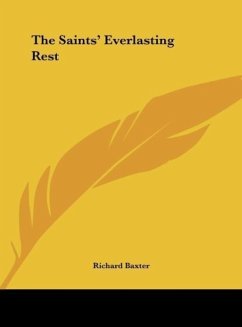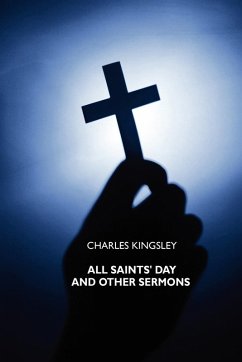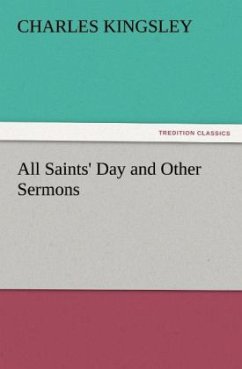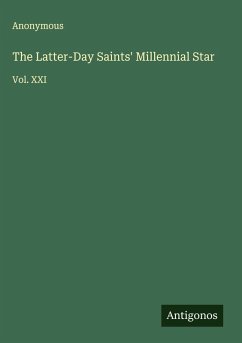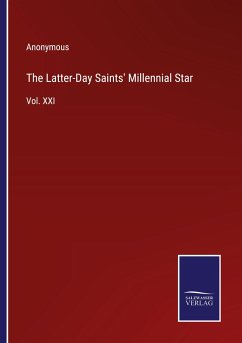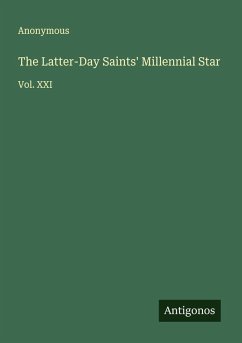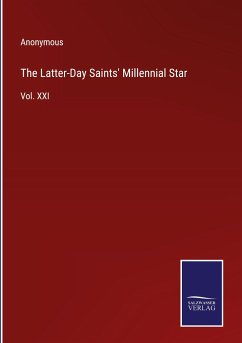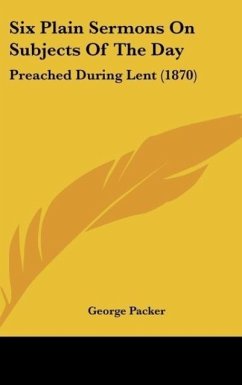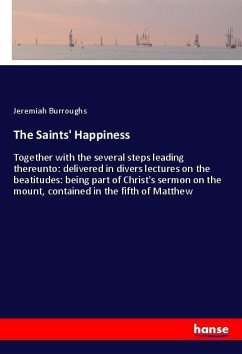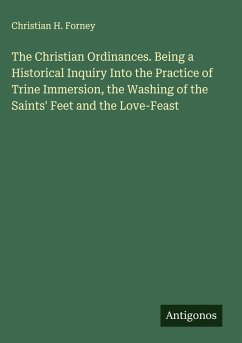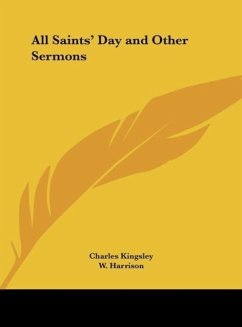
All Saints' Day and Other Sermons
Versandkostenfrei!
Versandfertig in 1-2 Wochen
40,99 €
inkl. MwSt.

PAYBACK Punkte
20 °P sammeln!
1878. The sermons found in this work could not be arranged according to any proper sequence. Those which refer to doctrine and the Church Seasons are mostly found in the beginning, while those which deal with practical subjects are found near the end. The original manuscripts have been adhered to as closely as possible. Most of these sermons were written out very roughly and were only intended for delivery from the pulpit.



